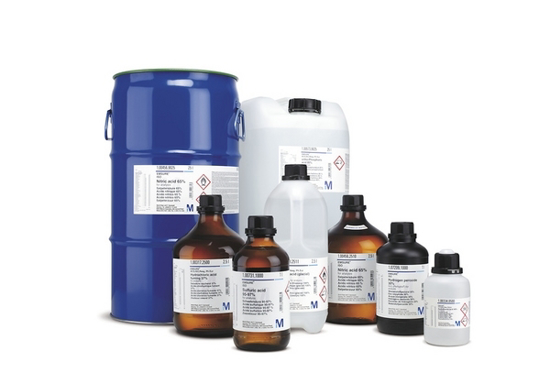Exploring the Global Reach of Ethanol: Our Role in Supplying Ethyl Alcohol to Nigeria and Beyond
Exploring the Global Reach of Ethanol: Our Role in Supplying Ethyl Alcohol to Nigeria and Beyond
Welcome to our blog, where we embark on an exciting journey across continents and explore the remarkable global reach of ethanol. Today, we shine a spotlight on Nigeria and delve into our crucial role in supplying ethyl alcohol to this vibrant nation, while simultaneously reaching far beyond its borders. Join us as we unravel the fascinating story behind this versatile fuel source and discover how it has become an essential component in shaping not only Nigeria’s future but also that of countless other nations around the world. Get ready to be captivated by the extraordinary potential of ethanol as we unveil its undeniable impact on both energy sustainability and economic growth!
Introduction to Ethanol and its Uses
Introduction to Ethanol and its Uses:
Ethanol, also known as ethyl alcohol, is a renewable fuel source that is made from plant-based materials such as corn, sugarcane, or switchgrass. It has been used for centuries in various industries, including food and beverage production, medicine, and most recently as an alternative fuel for transportation.
In recent years, the demand for ethanol has increased significantly due to its potential to reduce greenhouse gas emissions and decrease dependence on fossil fuels. This has led to a global market for ethanol production and distribution.
Uses of Ethanol:
1. Fuel:
One of the primary uses of ethanol is as a fuel source. It can be blended with gasoline in varying percentages to create cleaner-burning fuels. In Brazil, where sugarcane is abundant, ethanol makes up nearly 40% of the country’s total fuel consumption. In the United States, it is primarily used in gasoline blends at levels ranging from 10% (E10) to 85% (E85), depending on the type of vehicle.
2. Household Products:
Ethanol is also commonly found in household products such as cleaning agents and personal care items like mouthwash and hand sanitizer. Its ability to kill bacteria makes it an effective ingredient in these products.
3. Food and Beverage Production:
For centuries, ethanol has been used in food and beverage production as a preservative or flavoring agent. It can also be found in alcoholic beverages such as beer, wine, and spirits.
Our Role in Supplying Ethanol to Nigeria and Beyond
Our company is proud to play a crucial role in supplying ethanol to Nigeria and beyond. As one of the leading global suppliers of ethyl alcohol, we recognize the importance of this versatile and sustainable fuel source in promoting economic growth and environmental sustainability in various countries.
In Nigeria specifically, we have been actively involved in supplying ethanol for both industrial and household use. With the country’s large agricultural sector, ethanol production from sugarcane has been a viable option for meeting its growing energy demands. Our company has established long-standing relationships with local sugarcane farmers and distilleries to ensure a steady supply of high-quality ethanol for our customers in Nigeria.
One of the key benefits of using ethanol as a fuel source is its positive impact on the environment. Unlike traditional fossil fuels, ethanol is a renewable energy source that can help reduce greenhouse gas emissions. In addition, it burns cleaner than gasoline, reducing air pollution and improving overall air quality. By supplying ethanol to Nigeria, we are not only meeting the country’s energy needs but also contributing to its efforts towards sustainable development.
But our reach extends far beyond just Nigeria. We are committed to providing access to clean and sustainable energy sources worldwide, which is why we also supply ethanol to other countries across Africa and beyond. Our partnerships with local producers allow us to tailor our products according to each market’s specific needs while maintaining consistent quality standards.
Benefits of Ethanol as a Fuel Source
Ethanol, also known as ethyl alcohol, is a renewable and sustainable fuel source that has gained significant attention in recent years due to its numerous benefits. Derived from plant materials such as corn, sugar cane, and wheat, ethanol offers an alternative to traditional fossil fuels for powering vehicles and other applications.
In this section, we will explore the various benefits of using ethanol as a fuel source and how it can contribute to a greener future globally.
1. Reduced greenhouse gas emissions:
One of the primary advantages of using ethanol as a fuel source is its lower carbon footprint compared to traditional gasoline or diesel. When burned, ethanol produces significantly fewer greenhouse gases such as carbon dioxide and particulate matter. This reduction in emissions helps mitigate air pollution and contributes to combating climate change.
2. Renewable and sustainable:
Unlike fossil fuels that are finite resources, ethanol is derived from renewable plant sources. This means that it can be replenished through agricultural practices and does not contribute to depletion of natural resources. Additionally, growing plants for ethanol production can also act as carbon sinks by absorbing atmospheric carbon dioxide during photosynthesis.
3. Economic benefits:
Ethanol production creates job opportunities in agriculture and processing industries while reducing dependence on imported fossil fuels. In countries like Nigeria where there is an abundance of crops suitable for ethanol production, investing in local production can lead to economic growth and energy independence.
The Global Demand for Ethanol
Introduction:
Ethanol, also known as ethyl alcohol, is an important chemical compound that has been gaining significant global demand in recent years. It is a colorless, flammable liquid with a distinct odor and is commonly used as a solvent or fuel source. However, the most significant use of ethanol is in the production of alcoholic beverages.
The global demand for ethanol has been steadily increasing due to its versatile nature and wide range of applications. In this section, we will explore the various factors contributing to this growing demand and how it affects different regions around the world.
Growing Demand for Biofuels:
One of the main drivers of the global demand for ethanol is its use as a biofuel. With increasing concerns about climate change and depleting fossil fuel reserves, there has been a shift towards cleaner and more sustainable energy sources. Ethanol is derived from renewable sources such as corn, sugarcane, and wheat, making it an attractive option for reducing carbon emissions.
Many countries have implemented policies mandating the incorporation of biofuels into their fuel supply mix. For example, in Brazil – one of the largest producers and consumers of ethanol – all gasoline sold in the country must contain at least 27% ethanol. This trend towards using biofuels has contributed significantly to the growth in global demand for ethanol.
Sustainability and Ethanol Production
Sustainability and Ethanol Production:
In recent years, the topic of sustainability has become increasingly important in discussions surrounding ethanol production. As the demand for renewable energy sources continues to grow, it is crucial that we consider the long-term environmental impacts of our production methods.
One of the primary reasons why ethanol is considered a sustainable fuel source is because it is made from renewable resources, specifically corn and other plant materials. This means that as long as these resources are properly managed and replenished, there will always be a supply available for producing ethanol.
Furthermore, compared to traditional fossil fuels like gasoline or diesel, ethanol produces significantly lower emissions during combustion. This results in reduced greenhouse gas emissions and helps mitigate the effects of climate change. In fact, studies have shown that using ethanol blends in vehicles can reduce carbon dioxide emissions by up to 30%.
In addition to its environmental advantages, ethanol production also has positive social impacts on local communities where it takes place. With increasing concerns about fair trade and ethical sourcing practices, many companies are taking steps to ensure that their production processes support local economies and provide fair wages for workers.
At our company, we value sustainability not just in terms of environmental impact but also through responsible business practices. We work closely with local farmers to ensure that they use sustainable farming techniques and are fairly compensated for their crops. This not only supports the community economically but also promotes sustainable land management practices.
Partnering with Reputable Producers to Supply Ethanol in Nigeria
In order to effectively meet the growing demand for ethanol in Nigeria, we have established partnerships with reputable producers from around the globe. These partnerships allow us to ensure a reliable and consistent supply of high-quality ethanol that meets international standards.
One of our key partners is based in Brazil, one of the largest producers of ethanol in the world. With decades of experience and expertise in producing ethanol from sugarcane, this producer has been able to consistently provide us with a reliable supply of high-grade alcohol.
Another important partnership is with a leading European producer that specializes in producing ethanol from grains such as corn and wheat. Their state-of-the-art production facilities and strict quality control measures ensure that their ethanol meets all necessary regulations and standards.
We also work closely with local Nigerian producers who have years of experience in producing ethanol using traditional methods passed down through generations. By partnering with these producers, we are able to support local businesses while also promoting sustainability and preserving traditional methods of production.
Our partnerships not only help us maintain a steady supply of ethanol but also enable us to constantly improve our products through knowledge sharing and best practices. We regularly conduct trainings and workshops for our partners to enhance their production processes, resulting in an even better quality product for our customers.
Moreover, by partnering with reputable producers, we are able to source raw materials at competitive prices which ultimately benefits our customers by keeping the cost of our products affordable without compromising on quality.
Case Studies: Successful Partnerships and Impact on Local Communities
Case studies provide concrete examples of how successful partnerships in the ethanol industry have positively impacted local communities. These partnerships not only benefit the companies involved, but also create a ripple effect that benefits the entire community.
One such example is the partnership between an ethanol producer and a Nigerian company. The ethanol producer, based in Brazil, had been looking for opportunities to expand their market reach and increase their global presence. After careful research and analysis, they identified Nigeria as a promising market with high demand for fuel-grade ethanol.
However, entering a new market can be challenging and requires strong local partnerships to navigate cultural differences and regulatory barriers. This is where the Nigerian company came into play. They had a deep understanding of the local market and government regulations, making them an ideal partner for the ethanol producer.
Together, they formed a joint venture that not only allowed the Brazilian company to establish its presence in Nigeria but also created job opportunities for locals and boosted the country’s economy. The production of fuel-grade ethanol also helped reduce Nigeria’s dependency on imported fossil fuels and contributed to their efforts towards sustainable development.
Another successful partnership can be seen in Indonesia between an Indonesian sugar miller and an Australian renewable energy company. The sugar miller had excess molasses – a byproduct of sugar production – which they were looking to monetize. On the other hand, the renewable energy company was interested in expanding its portfolio beyond wind and solar energy.
Challenges and Future Opportunities in the Global Ethanol Market
Challenges in the Global Ethanol Market:
The global ethanol market has undergone significant changes in recent years, with increasing demand for biofuels and renewable energy sources. However, this growth has also brought about a number of challenges that must be addressed in order to sustain the industry’s development.
One of the primary challenges facing the global ethanol market is fluctuating prices. Ethanol prices are heavily influenced by factors such as government policies, weather conditions, and availability of raw materials. These price fluctuations can make it difficult for producers to plan and invest in long-term projects, leading to uncertainty in the market.
Another challenge is competition from other biofuels and traditional fossil fuels. With advancements in technology, alternative biofuels such as biodiesel and biogas have emerged as competitors to ethanol. Additionally, traditional fuels like gasoline and diesel continue to dominate the transportation sector worldwide. This makes it crucial for ethanol producers to continuously innovate and improve their production processes to remain competitive.
In addition, there are logistical challenges involved in transporting ethanol globally. As a highly flammable liquid, strict regulations must be followed when shipping ethanol across borders or oceans. This can increase costs and lead to delays in delivery times.
Future Opportunities in the Global Ethanol Market:
Despite these challenges, there are numerous opportunities for growth and development within the global ethanol market.
Firstly, there is a growing trend towards sustainable energy solutions globally due to concerns over climate change and environmental impact.
Conclusion: Our Commitment to Sustainable Ethanol Production
Conclusion: Our Commitment to Sustainable Ethanol Production
As we conclude our exploration of the global reach of ethanol and our role in supplying ethyl alcohol to Nigeria and beyond, it is important to highlight our commitment to sustainable ethanol production. At [Company Name], we understand that as a leading producer and supplier of ethanol, we have a responsibility towards the environment, society, and economy.
Sustainability is at the core of everything we do. We strive to minimize our environmental impact by implementing sustainable practices throughout our entire production process. This includes sourcing raw materials from responsible suppliers who adhere to ethical and sustainable farming practices, reducing water consumption through efficient processes, and optimizing energy usage by utilizing renewable sources whenever possible.
We also prioritize social responsibility by ensuring fair labor practices, promoting diversity and inclusion within our workforce, and supporting the communities in which we operate. Through various initiatives such as education programs for farmers and community development projects, we aim to create positive impacts on the lives of people living in areas where we source our raw materials.
Furthermore, we are committed to contributing positively to the local economies where we operate. By partnering with local farmers and businesses, we not only support their livelihoods but also promote economic growth in these regions.
But sustainability goes beyond just environmental and social aspects for us. It also encompasses economic sustainability – ensuring that our operations are financially viable in the long run. We continuously invest in research and development to improve efficiency, reduce costs, and stay ahead of industry trends.






Comments are closed.